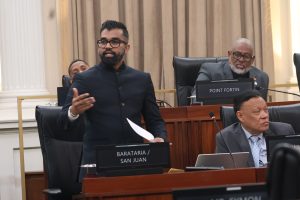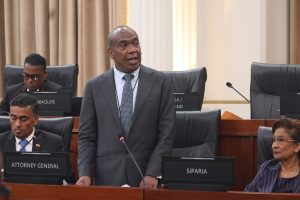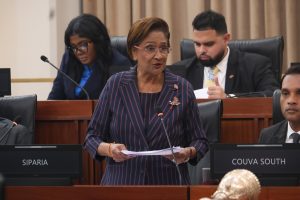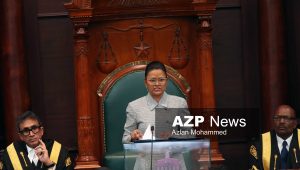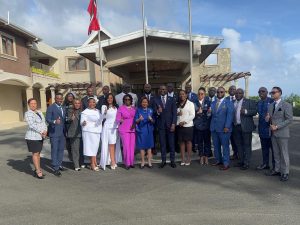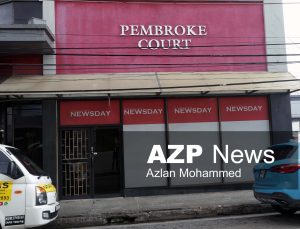By Prior Beharry
THE High Court rules in favour of former police commissioner Gary Griffith that a report into the granting of firearms from 2016 to 2021 not be laid in Parliament as suggested by Prime Minister Dr Keith Rowley.
Justice Devindra Rampersad said that the publication of the report to other state agencies or any other third party including Parliament was irrational and a breach of the rules of natural justice.
In a judgement on Wednesday, the High Court judge also granted an injunction restraining the prime minister from laying any part of the report or the executive summary in Parliament or publishing them.
Griffith had filed the case seeking to have the report quashed and an injunction restraining its publication granted.
He filed the matter against the National Security Council comprising PM Rowley (chairman) and members former attorney general Faris Al-Rawi, National Security Minister Fitzgerald Hinds, Finance Minister Colm Imbert, Energy Minister Stuart Young and Public Utilities Minister Marvin Gonzales.
The defendants also included the architects of the report ex-policemen Wellinton Virgil, Raymond Craig, Lennard Charles and Brian Pierre.
Griffith, who was police commissioner between August 18, 2018, and August 17 2021, alleged that the committee appointed to produce the report was unlawfully appointed.
At a political meeting, Dr Rowley said that Griffith as police commissioner was the biggest mistake he ever made.
When he received the report on the firearms depart Rowley said that it “makes for very disturbing reading.”
Justice Rampersad ruled that the report should not be made public but could be shared with the commissioner of police and the Police Service Commission for further inquiries under their statutory and constitutional obligations.
In a postscript to the judgement, Justice Rampersad expressed alarm that the executive appointed ex-police officers – no longer subject to the Police Service rules – to produce the report and investigate police records.
He said, “Those records are obviously related to the operation of the Police Service and ought not, in this court’s respectful view, to fall into the hands of the Executive or any other person acting on behalf of the Executive by means of the Committee even though it was done through the unchallenged allegation of the permission of the Commissioner of Police at the time.
“Now, those police records, under the agreement mentioned, have become the property of the Ministry of National Security – part of the Executive branch of the Government.”

In a release after the judgment, the Office of the Attorney General stated, “Specifically, the Court ruled that the National Security Council ‘was quite entitled under section 75 of the Constitution to take the steps that it did.’
“Further, the Court ruled that the Audit Committee did not breach Mr Griffith’s natural justice rights in any way, because ‘[Mr. Griffith’s] assertion of any right to be heard is premature.’
“Additionally, in responding to an enquiry by Mr Griffith’s attorneys in Court today, and in explaining its ruling on an allegation made by Mr Griffith that the Honourable Prime Minister had acted in bad faith in relation to the Audit Report, the High Court stated in open court today, to all parties, that that allegation had also been rejected.
“The direction of the High Court today to the Commissioner of Police and to the Police Service Commission is a definitive judicial direction that the law must now therefore be allowed to take its course.”

Griffith was represented by attorneys Avory Sinanan, SC, Larry Lalla instructed by Ajay Baball.
Lawyers for the members of the National Security Council were Russell Martineau, SC, leading Kerwyn Garcia and instructed by Tenille Ramkissoon and Kendra Mark Gordon.
The policemen who authored the report were represented by Gilbert Peterson, SC, leading Rishi Dass and instructed by Brent James, Fazana Ali and Murvani Ojah Maharaj
![]()






